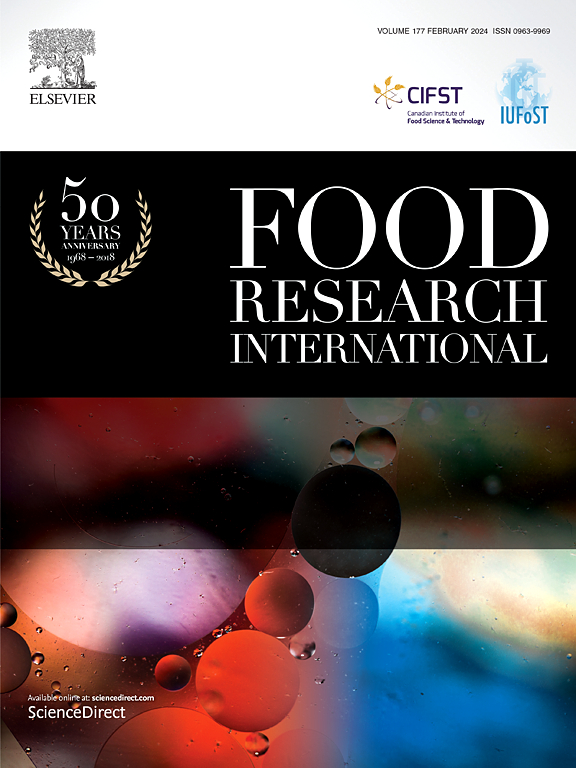微波预处理有利于油茶种子的油脂释放,降低油茶种子的脂肪酶活性
IF 7
1区 农林科学
Q1 FOOD SCIENCE & TECHNOLOGY
引用次数: 0
摘要
在油茶种子加工过程中,热预处理对油茶的产油率和品质的提高起着至关重要的作用。研究了四种热处理对油茶种子微观结构和理化性质的影响。所有预处理都改变了种子的外观和成分。其中,微波处理显著提高了游离脂肪含量(36.99%),油脂提取效率最高(90.99%),脂肪酶活性最低(20.24 U)。在此基础上,提出了微波提高油脂收率的潜在机理。微波可能破坏了细胞结构,降低了水分含量和脂肪酶活性,提高了种子的溶解度和溶胀力,改变了脂质复合物的氢键网络,促进了油-蛋白和淀粉复合物的分解和油分离。因此,微波是一种很有前途的技术,可以提高油茶籽油的产油率,增强油茶籽油的营养和功能特性,为油茶籽油的高品质生产提供有价值的见解。本文章由计算机程序翻译,如有差异,请以英文原文为准。
Microwave pretreatment of Camellia oleifera seed enhances the oil releasing and decreases lipase activity in wet extraction technology
Heat pretreatment plays a crucial role in enhancing both oil yield and quality during Camellia oleifera seed processing. This present study investigates the effects of four heat pretreatments on the microstructure and physicochemical properties of Camellia oleifera seed. All pretreatments altered the appearance and compositions of the seeds. Notably, microwave significantly increased free lipid content (36.99 %), and achieved the highest oil extraction efficiency (90.99 %) with the lowest lipase activity (20.24 U). Furthermore, the potential enhancement mechanism in oil yield of microwave was proposed. Microwave might have disrupted cellular structures, lowered moisture content and lipase activity, improved seed solubility and swelling power and modified the hydrogen bonding network of lipid complexes, which facilitated oil-protein and starch complex disintegration and oil separation. Therefore, microwave proved to be a promising technique for improving oil yield and enhancing the nutritional and functional properties of Camellia oleifera seed oil, providing valuable insights for high-quality oil production.
求助全文
通过发布文献求助,成功后即可免费获取论文全文。
去求助
来源期刊

Food Research International
工程技术-食品科技
CiteScore
12.50
自引率
7.40%
发文量
1183
审稿时长
79 days
期刊介绍:
Food Research International serves as a rapid dissemination platform for significant and impactful research in food science, technology, engineering, and nutrition. The journal focuses on publishing novel, high-quality, and high-impact review papers, original research papers, and letters to the editors across various disciplines in the science and technology of food. Additionally, it follows a policy of publishing special issues on topical and emergent subjects in food research or related areas. Selected, peer-reviewed papers from scientific meetings, workshops, and conferences on the science, technology, and engineering of foods are also featured in special issues.
 求助内容:
求助内容: 应助结果提醒方式:
应助结果提醒方式:


